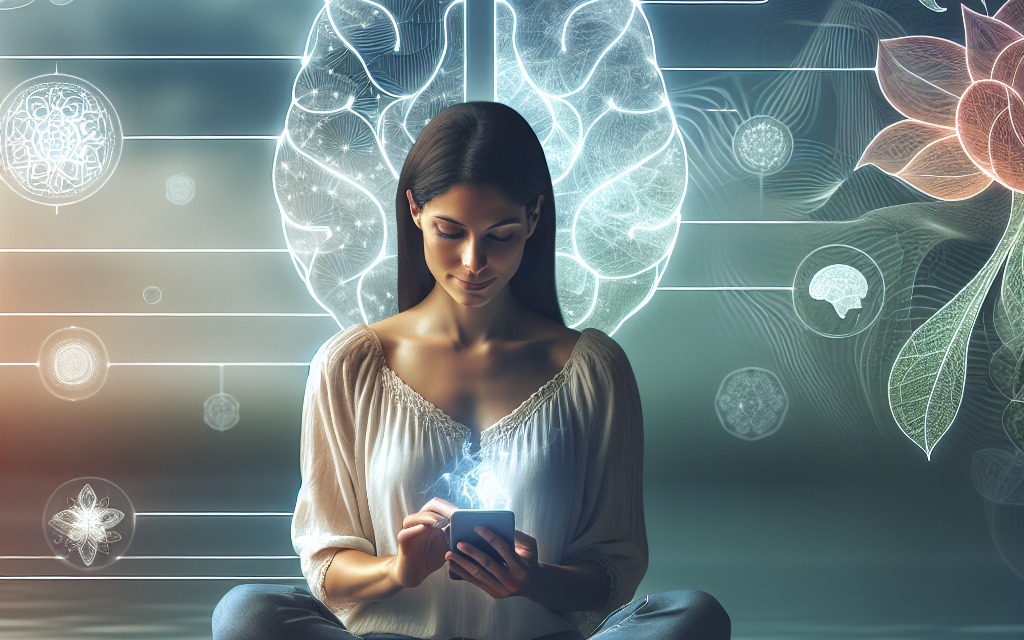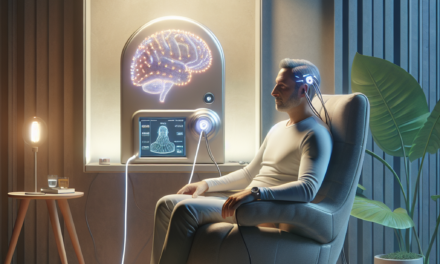Enhancing Mental Health Post-Brain Injury with Digital Solutions
Brain injuries can have profound and lasting effects on an individual’s mental health. The journey to recovery is often complex, requiring a multifaceted approach that includes medical treatment, rehabilitation, and psychological support. In recent years, digital solutions have emerged as powerful tools in enhancing mental health for individuals recovering from brain injuries. This article explores the various digital solutions available, their effectiveness, and how they can be integrated into recovery plans.
Understanding Brain Injury and Its Impact on Mental Health
Brain injuries, whether traumatic (TBI) or acquired, can lead to a range of cognitive, emotional, and behavioral changes. The effects can vary significantly based on the severity of the injury, the area of the brain affected, and the individual’s pre-existing mental health conditions.
According to the Centers for Disease Control and Prevention (CDC), approximately 1.5 million people in the United States sustain a TBI each year, with many experiencing long-term consequences. Common mental health issues following a brain injury include:
- Depression
- Anxiety
- Post-Traumatic Stress Disorder (PTSD)
- Personality changes
- Cognitive impairments
These conditions can significantly hinder recovery, making it essential to address mental health alongside physical rehabilitation. Digital solutions offer innovative ways to support mental health, providing accessible and personalized care options.
Digital Therapeutics: A New Frontier in Mental Health Care
Digital therapeutics (DTx) are evidence-based therapeutic interventions delivered via software programs to prevent, manage, or treat medical disorders. In the context of brain injury recovery, DTx can play a crucial role in addressing mental health challenges.
One notable example is the use of mobile applications designed to deliver cognitive behavioral therapy (CBT). Research has shown that CBT can be effective in treating depression and anxiety, common issues following brain injuries. Apps like Woebot and Moodfit provide users with tools to manage their emotions, track their moods, and engage in therapeutic exercises.
Studies indicate that digital therapeutics can lead to significant improvements in mental health outcomes. For instance, a randomized controlled trial published in the journal JAMA Psychiatry found that participants using a digital CBT program reported a 50% reduction in depressive symptoms compared to a control group.
Moreover, DTx can be tailored to individual needs, allowing for personalized treatment plans. This customization is particularly beneficial for brain injury survivors, as their experiences and recovery journeys can vary widely. By leveraging data analytics, these digital solutions can adapt to user feedback and progress, ensuring that the interventions remain relevant and effective.
Teletherapy: Bridging the Gap in Mental Health Support
Teletherapy, or online therapy, has gained popularity as a convenient and effective way to access mental health services. For individuals recovering from brain injuries, teletherapy offers several advantages:
- Accessibility: Many brain injury survivors face mobility challenges, making it difficult to attend in-person therapy sessions. Teletherapy allows them to receive support from the comfort of their homes.
- Flexibility: Online therapy can be scheduled at times that suit the individual, accommodating their unique needs and routines.
- Reduced stigma: Some individuals may feel uncomfortable seeking help in person due to stigma. Teletherapy provides a more private and less intimidating environment.
Research supports the effectiveness of teletherapy for various mental health conditions. A meta-analysis published in Psychological Bulletin found that teletherapy is as effective as traditional face-to-face therapy for treating anxiety and depression. This is particularly relevant for brain injury survivors, who may experience heightened anxiety about their recovery process.
Furthermore, teletherapy can facilitate ongoing support and check-ins, which are crucial for individuals navigating the complexities of recovery. Regular sessions with a mental health professional can help address emerging issues, provide coping strategies, and foster a sense of connection and support.
Mobile Apps for Mental Health Monitoring and Support
Mobile applications designed for mental health monitoring can be invaluable tools for individuals recovering from brain injuries. These apps can help users track their moods, identify triggers, and develop coping strategies. Some popular mental health apps include:
- Headspace: A mindfulness and meditation app that offers guided sessions to help users manage stress and anxiety.
- Calm: Focuses on relaxation techniques, sleep aids, and mindfulness practices to improve overall mental well-being.
- Daylio: A micro-diary app that allows users to track their moods and activities, helping them identify patterns and triggers.
Research has shown that using mental health apps can lead to improved emotional regulation and reduced symptoms of anxiety and depression. A study published in the journal Behavior Research and Therapy found that participants who used a mental health app reported a significant decrease in anxiety levels over a four-week period.
Moreover, these apps often incorporate gamification elements, making the process of tracking mental health more engaging. Users can earn rewards for completing tasks, which can motivate them to stay consistent with their mental health practices. This is particularly important for brain injury survivors, who may struggle with motivation and cognitive fatigue.
Virtual Reality (VR) as a Therapeutic Tool
Virtual reality (VR) technology has emerged as a groundbreaking tool in mental health treatment, offering immersive experiences that can aid in recovery from brain injuries. VR can be used for exposure therapy, cognitive rehabilitation, and relaxation techniques.
For instance, VR exposure therapy has been shown to be effective in treating PTSD, a common issue for individuals who have experienced traumatic brain injuries. By immersing users in controlled virtual environments, therapists can help them confront and process traumatic memories in a safe space. A study published in Journal of Traumatic Stress found that participants who underwent VR exposure therapy reported significant reductions in PTSD symptoms.
Additionally, VR can be used for cognitive rehabilitation exercises, helping individuals improve memory, attention, and problem-solving skills. Programs like Oculus for Business offer tailored cognitive training exercises that can be adjusted based on the user’s progress and needs.
Furthermore, VR can provide relaxation and mindfulness experiences, helping users manage stress and anxiety. Guided meditation sessions in a calming virtual environment can enhance the effectiveness of traditional mindfulness practices.
Conclusion: The Future of Mental Health Recovery Post-Brain Injury
The integration of digital solutions into mental health care for individuals recovering from brain injuries represents a significant advancement in treatment options. From digital therapeutics and teletherapy to mobile apps and virtual reality, these tools offer innovative ways to support mental health and enhance recovery.
As research continues to validate the effectiveness of these digital solutions, it is crucial for healthcare providers to incorporate them into comprehensive recovery plans. By doing so, they can provide individuals with the resources they need to navigate the challenges of recovery and improve their overall quality of life.
In summary, enhancing mental health post-brain injury with digital solutions is not just a trend; it is a necessary evolution in the way we approach recovery. By leveraging technology, we can create more accessible, personalized, and effective mental health care for those who need it most.




